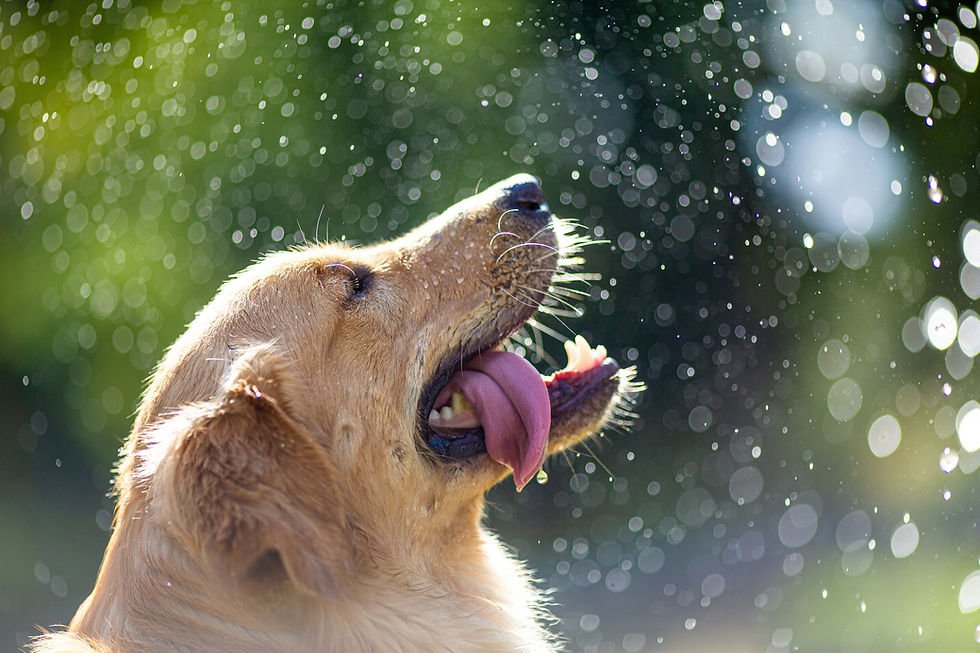Pet Dehydration Prevention in Summer: How to Keep Animals Safe in the Heat
- Oliver Mobile Vet Team

- Jul 14, 2025
- 2 min read
Updated: Aug 4, 2025

Pet Dehydration Prevention in Summer: How to Keep Animals Safe in the Heat
Just like people, animals are vulnerable to dehydration—especially during the summer months. Pet dehydration prevention in summer is essential for dogs, cats, and horses, whether they’re indoors, outdoors, or on the go.
Why Hydration Matters
Water supports nearly every major system in an animal's body. It helps regulate body temperature, keeps joints lubricated, aids in digestion, and helps flush toxins. Dehydration can lead to fatigue, overheating, kidney strain, and—in severe cases—organ failure.
Outdoor animals, active pets, seniors, and those with underlying health conditions are especially at risk when temperatures climb.
Signs of Dehydration in Pets and Horses
Recognizing the early signs of dehydration can make a big difference. Here are some of the most common symptoms to watch for:
Low energy or unusual behavior
Dry nose or gums
Excessive panting or drooling
Sunken eyes
Loose skin that doesn’t snap back into place when gently lifted
If you notice any of these, act quickly. Move your animal to a cooler area, offer small amounts of water, and contact your veterinarian for next steps.
Practical Tips to Keep Animals Hydrated
Preventing dehydration starts with creating good daily habits. A few simple actions go a long way:
Provide constant access to fresh, clean waterThis is non-negotiable. Make sure buckets, bowls, and troughs are cleaned and refilled regularly—especially in barns and outdoor areas.
Add ice cubes or frozen treatsDrop a few ice cubes into your dog’s water bowl or offer pet-safe frozen treats made from broth, fruit, or water. Some pets drink more when water is colder, especially in the heat.
Carry water on walks, trail rides, or travel daysBring a collapsible bowl or water bottle when heading out. Horses should have access to water during trailering, events, or extended turnout in hot weather.
Limit exercise during peak heatAvoid walks, play, or rides during the hottest hours of the day (typically between noon and 4 PM). Early morning or late evening is best.
Monitor drinking habits dailyA sudden increase or decrease in water intake could be a sign of illness. If your pet or horse isn't drinking normally, contact your vet.
When to Call a Vet
Heat-related illness can escalate quickly. If your animal is lethargic, vomiting, has trouble breathing, or shows signs of collapse, seek veterinary attention immediately. Early intervention can prevent long-term damage.
We provide mobile veterinary care throughout Northwest Ohio and Southeast Michigan, including wellness exams, hydration support, and emergency assessments. If you’re ever unsure about your animal’s hydration status or overall health, we’re here to help.
Final Thought
Hydration isn’t just a summer issue—it’s a year-round responsibility, especially for animals spending time outdoors. By staying alert and proactive, you can prevent heat-related illness and keep your pets and horses healthy, active, and safe.
Need support with your animal’s care? Call 419.345.1093 or visit www.olivermobilevet.com to book an appointment. We come to you—no loading, hauling, or waiting room needed.



